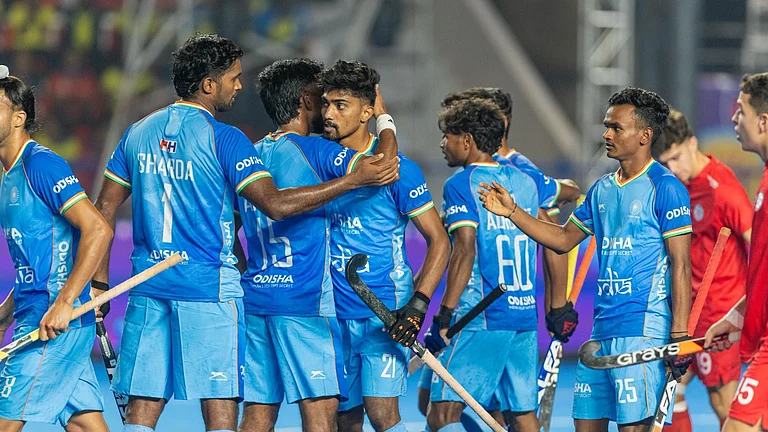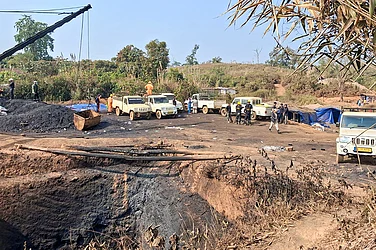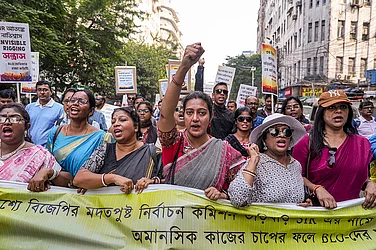The Congress on Wednesday attacked the government over high excise duty on petrol and diesel and said the cascading effect of high fuel prices is eating into incomes and pushing more and more Indians into poverty.
Congress spokesperson Anshul Avijit said the country is going through an unprecedented economic crisis and while inflation, unemployment and poverty remain at record levels, other socio-economic indicators such as hunger index or the human development index, continue to slide.
"The gap between the rich and poor is widening at an alarming rate. The GDP, once a healthy 8 per cent, has plummeted. There is no doubt that the BJP government is solely responsible for overseeing India's economic ruin," he said at a press conference at the AICC headquarters in New Delhi.
The Bharat Jodo Yatra is an attempt to unite India emotionally, socially and economically, and the tremendous response it has received in its initial days signals hope for the future, he said.
"The cascading effect of high fuel prices is eating into incomes and livelihoods and pushing more and more Indians into poverty. During the UPA, 28 crore people were taken out of poverty; now most of them have been pushed back in it," he claimed.
Avijit said since June 2022, when the price of crude oil in international markets was USD 116 per barrel, there has been a 37 per cent decline in prices.
"As of September 26, 2022, three months later, crude is down to USD 84.80 per barrel. Why has this benefit not been passed on to the Indian consumer? Why the prices of petrol and diesel have not been decreased in the same proportion?" he asked.
"By comparison, in May 2014, the last month of UPA rule, international crude was USD 106 per barrel. But retail prices (in Delhi) had been moderated to Rs 71.41 for petrol and Rs 55.49 for diesel. The intention was that the people of India were shielded from high prices to whatever extent possible," he said.
Avijit claimed the BJP government has earned a staggering Rs 28 lakh crore from taxes and duties on fuel from 2014 to first quarter of the current fiscal.
In fact, it has earned almost 10 lakh crore in the last two years alone, he added.
"Crucially, this period of high fuel costs coincides with rising inflation, clearly establishing the proportionality between the two. The rise in fuel prices leads to high prices of everything else. Inflation currently stands at 7 per cent, while the RBI’s target for inflation is 4 per cent and tolerance band is 2 per cent, either side. Seven per cent is an unacceptably high level," he said.
The excise duty on fuel remains incredibly high at Rs 19.90 for petrol and Rs 15.80 for diesel, he said.
"The two excise duty cuts, on November 3, 2021 and May 21, 2022, were disingenuous, even that has not been passed on to the people. For example, before May this year the BJP government had increased petrol by Rs 10 over 60 days. But the decrease was only by Rs 8. Diesel prices were also increased by Rs 10, but the decrease was only Rs 6," Avijit said.
The fuel prices were increased as soon as the assembly elections in five states of Uttar Pradesh, Punjab, Manipur, Goa and Uttarakhand got over, he said.
Discounted crude oil from Russia has given India a gain of Rs 35,000 crore so far, he claimed.
"The discount is as much as USD 30 per barrel. With the government imposing windfall tax, it is estimated that it may earn up to 1.3 lakh crore through new levies. Earlier, 1 per cent of imported oil was Russian, now it’s 12 per cent," Avijit said.
Why does the government not let the consumers benefit from this "windfall", he asked.
"It is abundantly clear that the government has failed in its macro-economic management and to protect the Indian people from the deep fluctuations in the oil market. The hope of any economic recovery remains a mirage," he said.
(With PTI inputs)


























